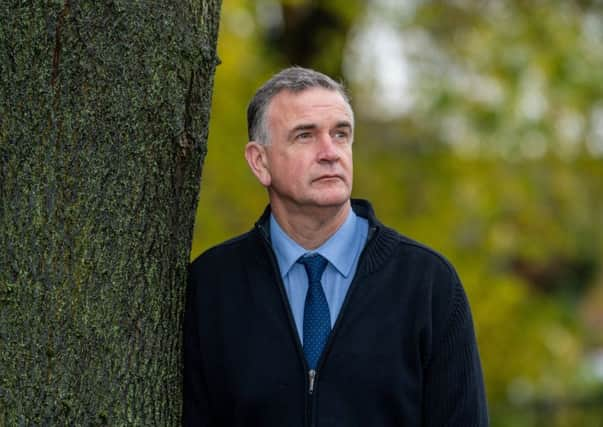Batley Homeless Project giving a helping hand to those living on the streets


The project was formed around three-and-a-half years ago, and stemmed from an initiative to get young people involved in social action in the community. “Since then we’ve served 6,000 hot meals a year,” says chairman Derek Hallas. “We regularly see around 70 people every week in North Kirklees, and help them with food, household essentials, clothing, you name it.
“We provide a lot of socks, hats, scarves and duvets during this time of year because keeping people warm on the streets is an issue.
Advertisement
Hide AdAdvertisement
Hide Ad“We are also about preventing homelessness as well.”We’ve helped around 60 people find homes. We pass around two or three people a week onto housing organisations.
“We’re working with Kirklees Council and housing officers - it’s gone way above what we expected it to.
“We’re a registered charity, we have four trustees. It’s a wonderful thing to be a part of.
“We have weekly outreach projects. We’ve done a lot of work in the community and we have volunteers from all backgrounds, all faiths and all ages.
Advertisement
Hide AdAdvertisement
Hide Ad“It shows that people from all communities do care about people in need and there are people who want to help.
“We have fantastic support from the supermarkets who provide us with food.
“We get great feedback from the people we help.”
Derek says there are a range of underlying causes of homelessness.”
Broken homes, alcohol abuse, drug abuse. We get a lot of young people who want to get away from their parents or step-parents, or from violence at home. “It’s definitely increased in terms of demand.
Advertisement
Hide AdAdvertisement
Hide Ad“We also get people from other countries, such as Hungary and Romania, who have been brought to this country and promised work, only to have their Visa cards taken off them and been told there is no work and they have nowhere to go and no way to get back to their home country.
“It’s an eye-opener. There are so many ways people can become homeless, and so many different stories.
“We see a lot of landlords who behave as if we are still in Victorian times, only giving two days’ notice for people to leave, even if they are paying their rent. They’ll kick them out when they have nowhere to go.
“There are also young people coming from children’s homes who have nowhere to go, no history, no ID.
Advertisement
Hide AdAdvertisement
Hide Ad“But there’s no straightforward answer to any of these problems.”
The project provide a regular weekly outreach in Dewsbury on Friday from 5.30pm and on Wednesday in Leeds City Centre from 7pm. “It’s a challenge at times,” says Derek. “Demand seems to be growing and growing.”Even when people are in homes, they can struggle to find the money to feed themselves, or feel isolated and want to go back to the streets where there are people they know.
“So we’re looking at how we can keep people in their homes and support them there.
“Some people we see have been on the streets for 14 or 15 years. It’s part of their life.
Advertisement
Hide AdAdvertisement
Hide Ad“We do get referrals from other organisations, for people who need food parcels. A housing organisation may have found someone a place but they need food or clothing.
“We try to bring organisations together so that they talk to each other and share the problem around.
“It’s very hard, and quite frustrating. We hope to be able to start providing a continual hub where we can direct people to other support providers.
“A lot of the housing organisations have moved to Huddersfield now, so we would like them to come and use our premises to meet with the people we support, because a lot of these people don’t want to travel, so we’re trying to bridge the gap.
“Hopefully they trust us and see that we care about them and want to help them.”